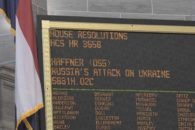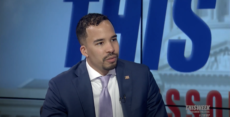Missouri’s Peace Officer Standard and Training (POST) Commission granted preliminary approval for the first law enforcement training academy to be hosted by a historically Black college or university (HBCU) in the U.S. Monday.
The preliminary approval to the request from Lincoln University to establish the new training academy allows the commission to evaluate the campus’ law enforcement education programs before the next commission meeting. The commission would then approve a test year for the academy based on its findings and then consider a full three-year certification.
“Our vision is having a basic training police academy as part of our curriculum,“ Joe Steenbergen, a criminal justice professor at Lincoln University, said. “We have great police academies within our state right now. The problem is the difficulty in recruitment of minorities due to the lack of access to full-time police academies. If we can get these kids and get this designed so it can be an associate’s degree or a bachelor’s degree, we can give them a full semester of police academy on campus so they can be prepared once they graduate.”
The program would allow students to devote their final semester at Lincoln to a full-time training academy as part of their schooling rather than forcing them to go off-campus.
Steenbergen said the focus would be on minority recruitment and cultural diversity training. He said the expansion would benefit both students and police forces across the country.
“These kids would be getting job offers before they graduate,” he said. “Hopefully the other 107 HBCUs across the country would look at this and do their own version to promote minority recruitment and diversity in police forces.”
Commissioners voiced their support for the application, noting minority recruiting had been difficult in their respective jurisdictions.
“I want to commend Lincoln for taking this on and moving it forward,” Springfield Police Chief Paul Williams, a member of the POST Commission, said. “Minority recruitment is probably the most difficult part of the recruiting process right now, and it’s not getting any easier. Any avenues we can open to make recruitment more advantageous and accessible is fantastic.”
The commission also considered the results of a survey administered to the public and law enforcement agencies earlier this year. The request came after the civil unrest sparked nationwide from recent officer-involved shootings of Black people.
Based on results from the survey, commissioners recommended expanding training requirements for racial bias and de-escalation techniques for trainees as well as law enforcement history in academies.
Commissioners will meet in additional open committee meetings before the next agenda meeting in mid-December to consider curriculums and requirements for expanded training.
The POST Commission is tasked with establishing the core curriculum for Missouri’s 19 basic training academies, definitions, rules, and regulations for the overall program and continuing education of officers. It also serves as an advisory group for the Department of Public Safety (DPS) director.

Cameron Gerber studied journalism at Lincoln University. Prior to Lincoln, he earned an associate’s degree from State Fair Community College. Cameron is a native of Eldon, Missouri.
Contact Cameron at cameron@themissouritimes.com.


























